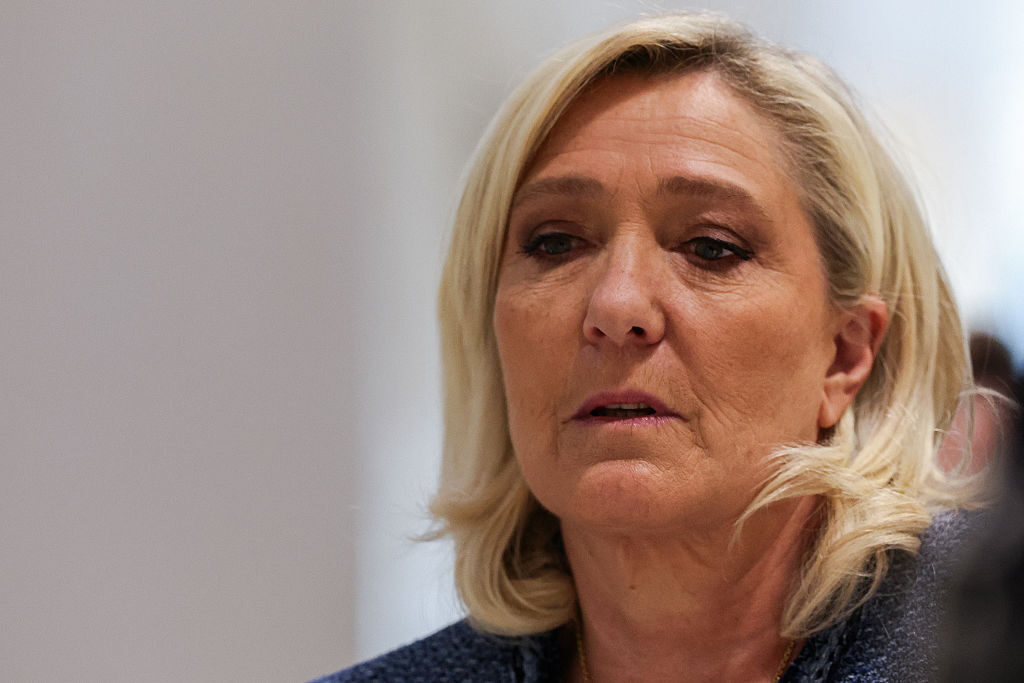The conviction of Marine Le Pen is the latest stage of Europe’s “descent into the abyss of totalitarianism”, according to former Greece finance minister Yanis Varoufakis. Earlier today, the Rassemblement National parliamentary leader was found guilty of embezzling European Union funds, and is set to be banned from running for public office for five years.
Varoufakis told UnHerd that the charges against Le Pen were “laughable and ludicrous”, and that to make them “a jailable offence and also a reason to bar her from running in the presidential election” was “mindboggling”. He added: “It really worries me that the liberal establishment is doing its utmost to strengthen the appeal of the neofascist Right in Europe […] Either the law applies to everyone or it applies to no one.”
The economist has previously criticised the electoral ban of Romania’s Right-wing presidential frontrunner, Cǎlin Georgescu, labelling the decision “preposterous”. Today he compared that ban with the RN politician’s conviction, stating: “The Romanian case was the dress rehearsal. Now, they’ve moved on to Le Pen. Tomorrow, they’ll go after Jean-Luc Mélenchon.”
Another point of comparison for Varoufakis was the ongoing political crisis in Turkey, where President Recep Tayyip Erdoğan’s imprisonment of his main political rival, Istanbul Mayor Ekrem Ímamoğlu, has provoked widespread protests against the government. Erdoğan is “laughing his head off as he’s watching this descent into the abyss of totalitarianism by the European Union,” Varoufakis said today, “because how can they disabuse him of what he has done, which is exactly the same?”
Like Ímamoğlu, Le Pen has consistently polled as the most likely winner of the next presidential election. Even her political rivals have condemned today’s verdict, with Éric Coquerel of the Left-wing La France Insoumise saying: “I don’t agree that things that should be decided by the ballot box are decided by the courts. It will only paint the National Rally as a victim.” Varoufakis agreed with this assessment, posting on social media this afternoon that “France’s neofascists will only benefit from this.”
Varoufakis stressed that “I think Le Pen is a fascist, personally. I’d like to see her be destroyed politically.” At the same time, in his view, lawfare “has been disproportionately waged against the outer Right, because the Left has disappeared”. The Greek politician compared Le Pen’s treatment to the means used by the Democratic Party against Donald Trump, only “the French are doing it in a more obvious, less defensible way than the American Democrats.”
Varoufakis, who attacked the attempted shutdown of the National Conservatism conference in Brussels last year as “farcical authoritarianism”, highlighted a 2016 guilty verdict for Christine Lagarde on similar charges to Le Pen, also in a French court. She kept her job as head of the International Monetary Fund, and has since become president of the European Central Bank. “Nobody has made a peep about [her previous conviction],” Varoufakis observed today. “I have zero trust in the capacity of the judiciary to act as a judiciary, in France and more broadly.”











Join the discussion
Join like minded readers that support our journalism by becoming a paid subscriber
To join the discussion in the comments, become a paid subscriber.
Join like minded readers that support our journalism, read unlimited articles and enjoy other subscriber-only benefits.
Subscribe